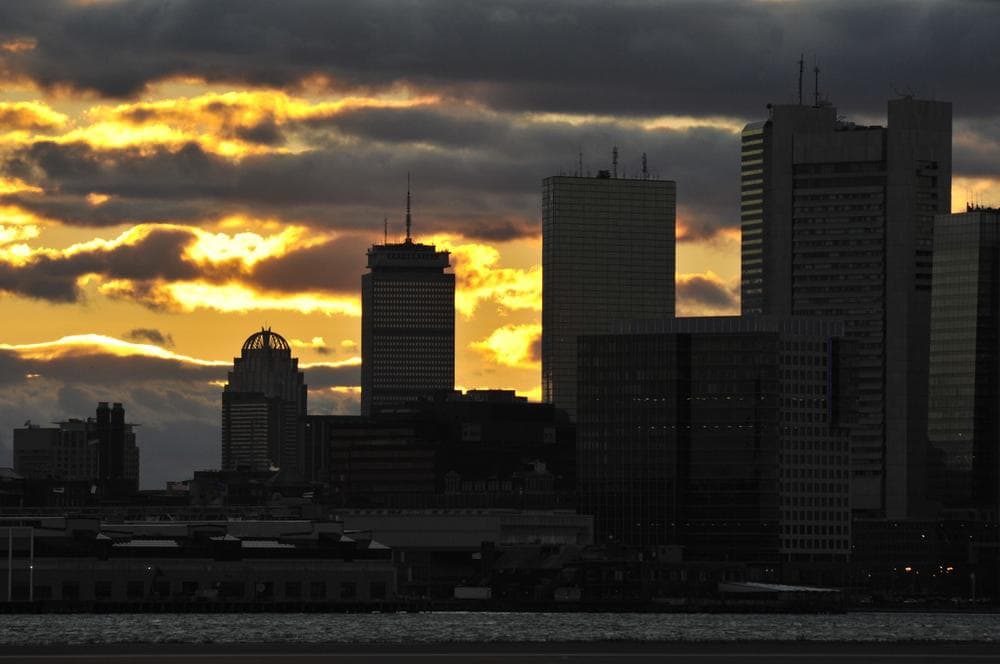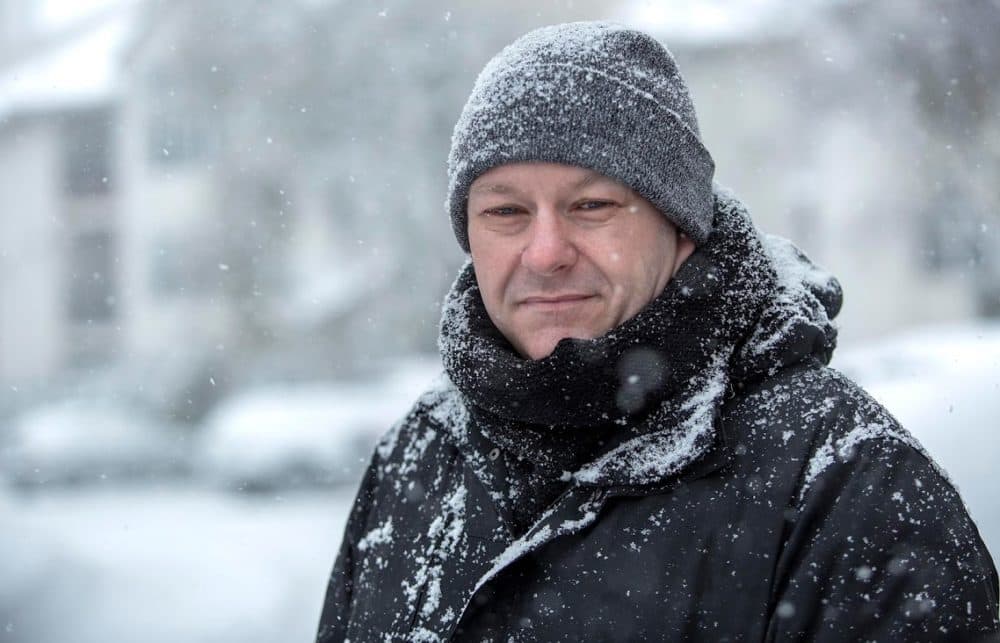Advertisement
People With Seasonal Affective Disorder Worry It'll Hit Hard In Pandemic

The end of Daylight Saving Time Sunday morning means an extra hour of sleep and earlier sunsets. But for many people it's the bellwether of a dark stretch of depression known as seasonal affective disorder, or SAD.
Gabrielle Starr, 27, of Brookline says for her, SAD comes on gradually.
"As the days get shorter and it gets darker earlier ... I just feel my energy levels dropping," she explained.
Starr was diagnosed with seasonal affective disorder when she was a sophomore in college. She has bouts of depression at other times of year, too, she said. But SAD is different; she doesn't have the energy to do anything or go anywhere.
And this year, the pandemic is making things more difficult because she's been in "hibernation" for months, she said.

"It just feels like [SAD is] hitting me harder than it usually does," Starr explained. "I mean, yesterday I was in bed until noon just because it was cloudy and gray and I just — I didn't have any motivation to get up."
She describes the way the disorder makes her feel as "wading through molasses ... It's feeling like things are insurmountable, like, even things that normally would be so easy."
Starr owns a sports podcasting and multimedia company, and when experiencing SAD, she struggles to get through the more labor-intensive parts of her work days. She's staying at a family home on Cape Cod through the pandemic. And she knows pretty soon she's not going to want to leave the house.
"One of the things that I usually do to just help my overall mental health, especially in the winter ... is I force myself to book workout classes that are non-refundable," Starr explained. "Because I don't want to get off the couch, but I also don't want to lose, you know, a $25 yoga class or SoulCycle class. But those options are not available this winter."
Advertisement
'Going To Need To Get Creative'
According to the American Psychiatric Association, about 5% of U.S. adults have seasonal affective disorder, and it typically lasts approximately 40% of the year. It is more common among women than men.
"It just feels like it's hitting me harder than it usually does ... It's feeling like things are insurmountable, like, even things that normally would be so easy."
Gabrielle Starr
Kristin MacGregor is a clinical health psychologist with UMass Memorial Health Care. She points out that though some people with SAD have other mental health conditions — such as clinical depression — at other times of year, many are only affected during the cold weather months. And although a small number of her patients are doing better during the pandemic because they feel less alone in experiencing isolation, MacGregor said, she predicts this winter will be extra difficult for most people with SAD.
"We in the mental health field are in a bit of a panic, I think," MacGregor reflected. "I think we're just all preparing for people to not be able to see their loved ones at the holidays or not be able to travel and do the things that they would normally do."
Even physical activity — which helps many people with SAD and other mental illnesses — will likely be down, she said. "People would go walk around the mall or go walk around Home Depot. And a lot of people don't feel safe doing that right now ... And so I think we're really going to need to get creative."
For many people, that will mean connecting over virtual platforms with family and friends, as well as taking up outdoor activities such as snowshoeing and winter hiking, MacGregor said.
"In working with a therapist ... you can talk about just trying to problem solve what might fit into their life, because it's certainly not a one-size-fits-all kind of solution," she added.
For those seeking fast relief if they feel themselves slipping into seasonal affective disorder after the time change this weekend, MacGregor suggests they make a point to run an errand during their lunch break, look for a way to do their work near a window during the day, and try therapy with special lights meant to mimic the sun —which are available for purchase online.
"It's less ideal than actually getting outside in the sunshine," MacGregor said. "But you can sit in front of one of those in the morning for a couple hours just to sort of stimulate that notion of being out in the sun to see if that helps a little bit."
'Concern Of Being Isolated'
Andy Woodnutt of Lexington knew months ago he needed to bolster his defenses against SAD.
"I started to speak with my psychiatrist and my therapist — probably as early as June-July time — to start to figure out what we needed to do, either in terms of medications or in terms of therapies and just planning in general, so that when this weekend came, I was in a much, much better shape to be able to deal with it," Woodnutt explained.
He's 49 and the IT director for a software company. He was diagnosed with Major Depressive Disorder four years ago after his family went through a difficult time. Seasonal affective disorder hit him last year. He had suicidal thoughts and gained weight after he turned to food to cope. He knows he doesn't want to have another winter like that.
"The pandemic has really kind of amplified that thought and my concern of being isolated because I'm working from home, not being able to go out as often as I might like or not seeing the sunshine as much as I would like," Woodnutt said.

Now, he maps out his days to make sure he finishes work by a specific hour and spends time with his family. His wife has become attuned to when his mood starts to destabilize — and she helps him feel safe, he said.
Woodnutt's therapist has told him his recovery is like a three-legged stool; he needs medicine, therapy, and exercise to stay upright.
"I don't cancel therapy regardless of what I'm doing. I always make time," he said. "I've lost the weight that I gained last winter ... And so that, along with a plan and doing some simple things like mindfulness, using light therapy for the winter and taking vitamin D — those are all things that help prepare me and help me manage what happens through the winter."
Woodnutt wants others to know that having seasonal affective disorder doesn't define them, and that there is therapy and treatment.
"Go and embrace the help, because it does make a difference. I can't express that enough," he said.
Resources: If you're looking for help finding support or treatment for SAD, The National Alliance on Mental Illness Massachusetts chapter says you can call its COMPASS Helpline at 617-704-6264 or 1-800-370-9085. Or email compass@namimass.org.
If you're in mental health crisis, you can reach the National Suicide Prevention Lifeline at 1-800-273-TALK (8255) and the Samaritans Statewide Hotline (call or text) at 1-877-870-HOPE (4673). Call2Talk can be accessed by calling Massachusetts 211 or 508-532-2255 (or text c2t to 741741).
This segment aired on October 30, 2020.

